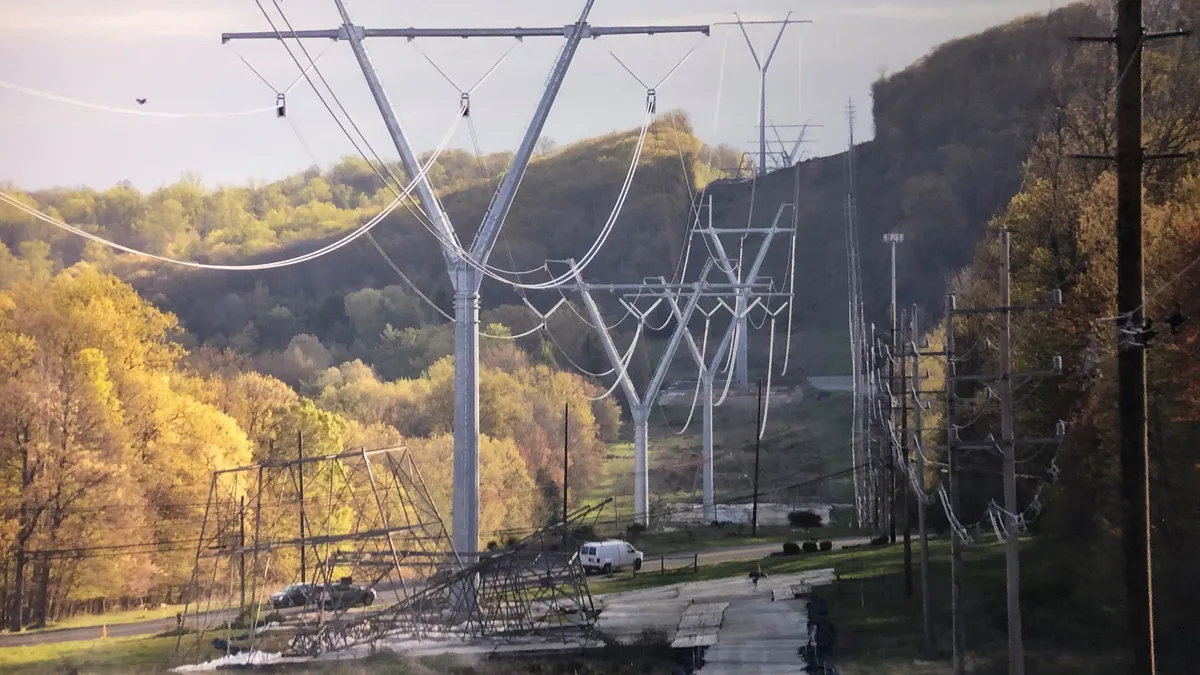Public Citizen is challenging the PJM Interconnection’s proposal to assign the costs to ratepayers of a $546 million transmission project built by Public Service Electric & Gas, saying a recent settlement agreement with the Federal Energy Regulatory Commission shows the spending was imprudent and allocating those costs is “unjust and unreasonable.”
The Dec. 5 settlement agreement between PSE&G and FERC’s enforcement office relates to the same transmission project that ratepayers would pay for under PJM’s cost allocation plan.
The agreement details “harrowing fraud” committed by the Public Service Enterprise Group utility and a failure by PJM and its board “to perform a modicum of independent oversight, not to mention inane record keeping practices by the grid operator,” Public Citizen, a consumer advocacy group, said in a protest filed today at FERC.
Public Citizen’s protest comes amid growing scrutiny of local transmission projects — called supplemental projects in PJM — that receive little regulatory oversight, according to ratepayer advocates and others.
The protest is in response to an annual filing by PJM to dole out the costs from its regional transmission expansion plan filed with FERC on Dec. 20. The filing includes PSE&G’s recently completed 230-kV Roseland-to-Pleasant Valley replacement project, which upgraded a roughly 90-year-old transmission line.
About two weeks before PJM’s filing, PSE&G agreed to pay $6.6 million to settle allegations it gave the grid operator inaccurate information about the Roseland-to-Pleasant Valley project during PJM’s regional transmission expansion plan process in 2017.
For example, in presentations to PJM staff on the project, PSE&G said a consultant found that 67 towers needed “extensive foundation rehabilitation” when the consultant had determined only eight towers required that work, according to FERC.
“It is disturbing that PJM and its Board of Managers would approve a cost recovery rate filing incorporating a transmission project it knew to be the subject of an enforcement order — demonstrating PJM’s disinterest in ensuring just and reasonable rates in its Open Access Transmission Tariff,” Public Citizen said in the pending filing.
Because of the facts in the Dec. 5 settlement agreement, FERC should not assume, as it usually does, that the expenditures on the project were prudent, according to Public Citizen.
“While the enforcement order documents clear wrongdoing committed by PSEG — imposing a civil penalty upon the transmission owner of $6.6 million payable to the U.S. Treasury — the enforcement order fails to protect consumers from unjust and unreasonable rates resulting from PSEG’s scam,” Public Citizen said.
FERC must find PJM’s proposed cost allocation to be unjust and unreasonable, and set the issue for hearing, Public Citizen said.
The advocacy group said that FERC’s settlement order noted that in reviewing the PSE&G project, PJM relied on utility PowerPoint presentations, failed to perform independent due diligence and did not keep records of meetings where the project was discussed.
Public Citizen filed a complaint nearly seven ago about PJM’s failure to transcribe stakeholder meetings, the group said. “We have more detail in the fossil record of the Brontosaurus from the Late Jurassic epoch 150 million years ago than is contained in PJM stakeholder committee meeting minutes 6 months ago,” Public Citizen said in the complaint, which FERC rejected in 2019.
PSE&G will “vigorously defend” against claims there was imprudence related to the Roseland-to-Pleasant Valley rebuild, William Smith, a PSE&G spokesman, said in an email Friday.
“Before it was rebuilt, [Roseland-to-Pleasant Valley] was one of the oldest lines on PJM’s system, with 90% of its towers being built between 1927 and 1930,” Smith said. The replaced RPV line provided reliability and system benefits as compared to the original RPV design including greatly increasing its capacity.
Editor’s note: this story has been updated to include comment from PSE&G.














